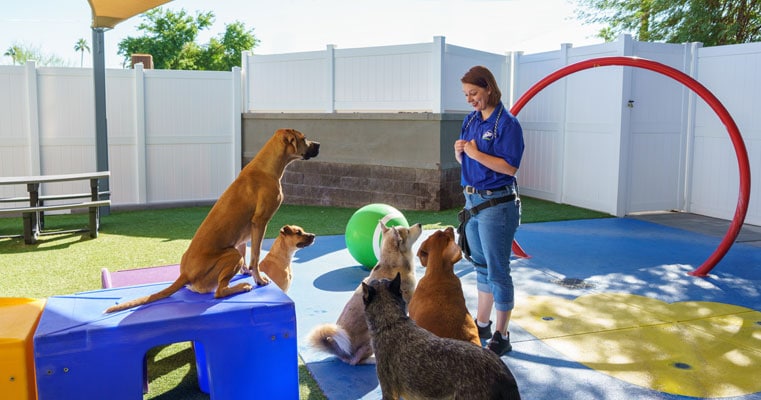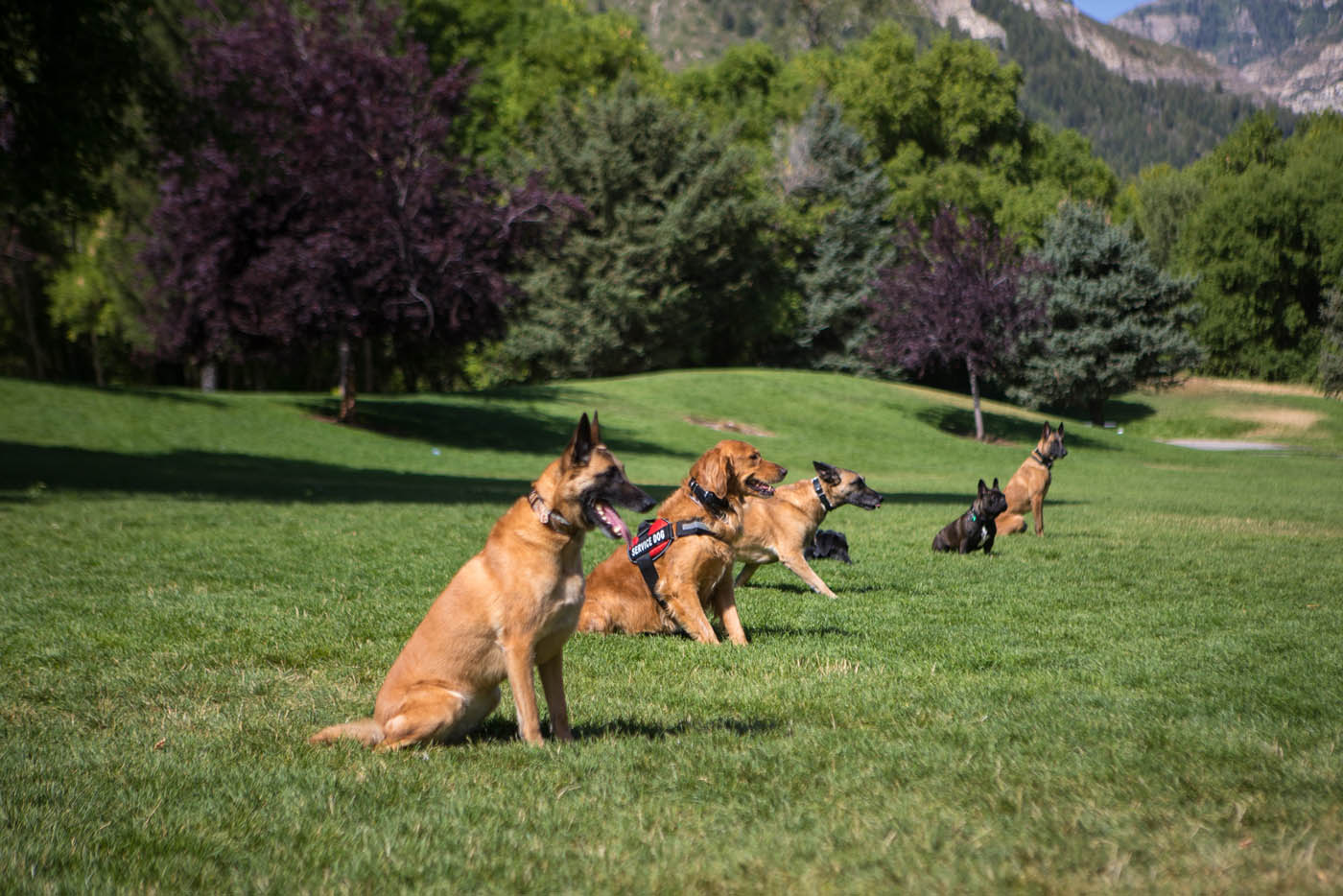How Professional Dog Training Can Enhance Your Dog’s Skills and Behavior
How Professional Dog Training Can Enhance Your Dog’s Skills and Behavior
Blog Article
Unlock Your Pet dog's Potential With Expert Training Insights
Specialist training understandings expose that acknowledging interaction signs and using constant, positive reinforcement can substantially alter your dog's reaction to different circumstances. As we discover reliable socializing strategies and advanced training techniques, one may question exactly how these methods can change not simply your canine's habits, but also your total partnership.
Recognizing Your Pet dog's Behavior

Additionally, comprehending usual behavior concerns such as hostility, stress and anxiety, or too much barking can help owners address issues proactively. Rather of punishing unfavorable habits, it is extra reliable to identify the underlying causes and work towards changing those triggers. For instance, a dog that barks excessively may be looking for focus or responding to environmental stimuli.
Moreover, each canine is distinct, affected by elements such as type, age, and previous experiences. Observing and recognizing your dog's specific behavior is vital to creating a training approach that aligns with their character. By fostering this understanding, owners can create a more unified living setting, improve their pet dog's understanding experience, and ultimately reinforce their bond.
The Relevance of Uniformity
Preserving consistency in training is vital for attaining wanted results and strengthening positive behaviors in canines. When training sessions follow a foreseeable structure, dogs are more most likely to comprehend what is expected of them. This quality promotes a sense of protection and assists to establish a solid bond between the fitness instructor and the canine.
Irregular hints or commands can confuse pet dogs, resulting in disappointment for both the animal and the trainer. If a command is often rewarded and various other times disregarded, the pet may end up being unsure concerning exactly how to react. This variance not just hinders the finding out process yet can also accidentally motivate unwanted behaviors.
Moreover, uniformity extends past spoken commands to consist of body language and tone. Pet dogs are very attuned to human habits, and inconsistencies can threaten their trust. For effective training, all relative and trainers should be lined up in their technique, making use of the same commands and reinforcement techniques.
Inevitably, consistency in training promotes a structured understanding environment, enabling pet dogs to prosper and react favorably to commands. This foundational principle is vital for creating mannerly, certain, and obedient companions.
Methods for Efficient Training
Efficient training strategies build on the structure of uniformity developed in previous sessions. Using favorable support is just one of one of the most reliable approaches for motivating wanted actions. This involves rewarding your canine with treats, praise, or playtime instantly after they do the preferred activity, hence developing a solid organization in between the habits and its positive result.
Timing is critical; incentives must be provided quickly to reinforce the connection. In addition, making use of constant and clear commands will help your dog recognize what is anticipated of them. Select easy, distinct signs and prevent utilizing multiple expressions for Discover More the exact same action.
Incorporating brief, appealing training sessions can also boost retention and stop monotony. Go for sessions lasting 5 to 10 mins, slowly increasing the period as your canine becomes extra skilled. Additionally, differing the training atmosphere can help generalise learned actions, ensuring your dog can do commands in different contexts.
Last but not least, persistence is vital. Every pet dog learns at their very own pace, and support fosters a positive learning experience. By applying these strategies regularly, you can open your canine's complete potential and enhance the bond in between you and your canine buddy.
Socializing and Its Benefits
Socialization is an essential facet of a dog's advancement, dramatically influencing their habits and personality. It encompasses the procedure of revealing a dog to a range of individuals, settings, sounds, and other pets. This direct exposure helps canines discover to browse the intricacies of their surroundings, fostering confidence and flexibility.
Correct socialization decreases the likelihood of fear-based habits and hostility, which can emerge from unfamiliar situations. A well-socialized canine is more probable to show favorable interactions with both humans and other pets, leading to a more pleasurable experience for everybody included (Dog training). Moreover, socializing plays an essential duty in boosting a pet's total quality of life, enabling them to participate in tasks and getaways without too much anxiousness.
The crucial period for socializing happens between three and twelve weeks of age, although ongoing socialization is useful throughout a dog's life. Engaging in monitored playdates, young puppy courses, and steady direct exposure to new experiences can their explanation promote this procedure. By focusing on socializing, canine owners can cultivate a well-rounded friend, geared up to deal with different circumstances with grace and composure, ultimately causing a harmonious relationship between the dog and its setting.
Advanced Training Approaches
A well-socialized pet dog is better prepared to engage in sophisticated training techniques, which can better fine-tune their skills and enhance their overall actions. Advanced training strategies, such as remote control dexterity, scent, and training work, call for a strong foundation of basic obedience and social skills. These approaches concentrate on establishing a pet's cognitive capacities, improving their emphasis, and cultivating a deeper bond in between the dog and handler.
Agility training challenges pet dogs both literally and emotionally, promoting coordination, confidence, and analytical abilities. This can be an electrifying means for dogs to melt off power while improving their responsiveness to commands.
Scent work use a canine's natural impulses, enhancing their olfactory capacities while constructing their focus and persistence. Including these advanced training methods not only stimulates a dog's mind but also adds to their psychological health. Inevitably, participating in advanced training can change a well-socialized pet right into an all-around companion, capable of browsing intricate settings effortlessly and self-confidence.
Verdict
In final thought, opening a canine's possibility with professional training necessitates a detailed understanding of habits, uniformity in techniques, and effective socializing methods. By prioritizing these components, an all-around and fulfilling partnership between pet and owner can be developed, eventually leading to a harmonious conjunction and a well-behaved buddy.
As we discover effective see this socializing techniques and progressed training techniques, one might wonder just how these approaches can change not simply your canine's actions, but likewise your general relationship.
By focusing on socialization, dog owners can cultivate a well-rounded companion, furnished to take care of various scenarios with grace and composure, eventually leading to an unified connection in between the dog and its environment. (Dog training)
A well-socialized canine is better prepared to involve in innovative training approaches, which can further refine their skills and improve their general habits. These techniques concentrate on creating a pet's cognitive capacities, boosting their emphasis, and cultivating a much deeper bond in between the pet and trainer.

Report this page